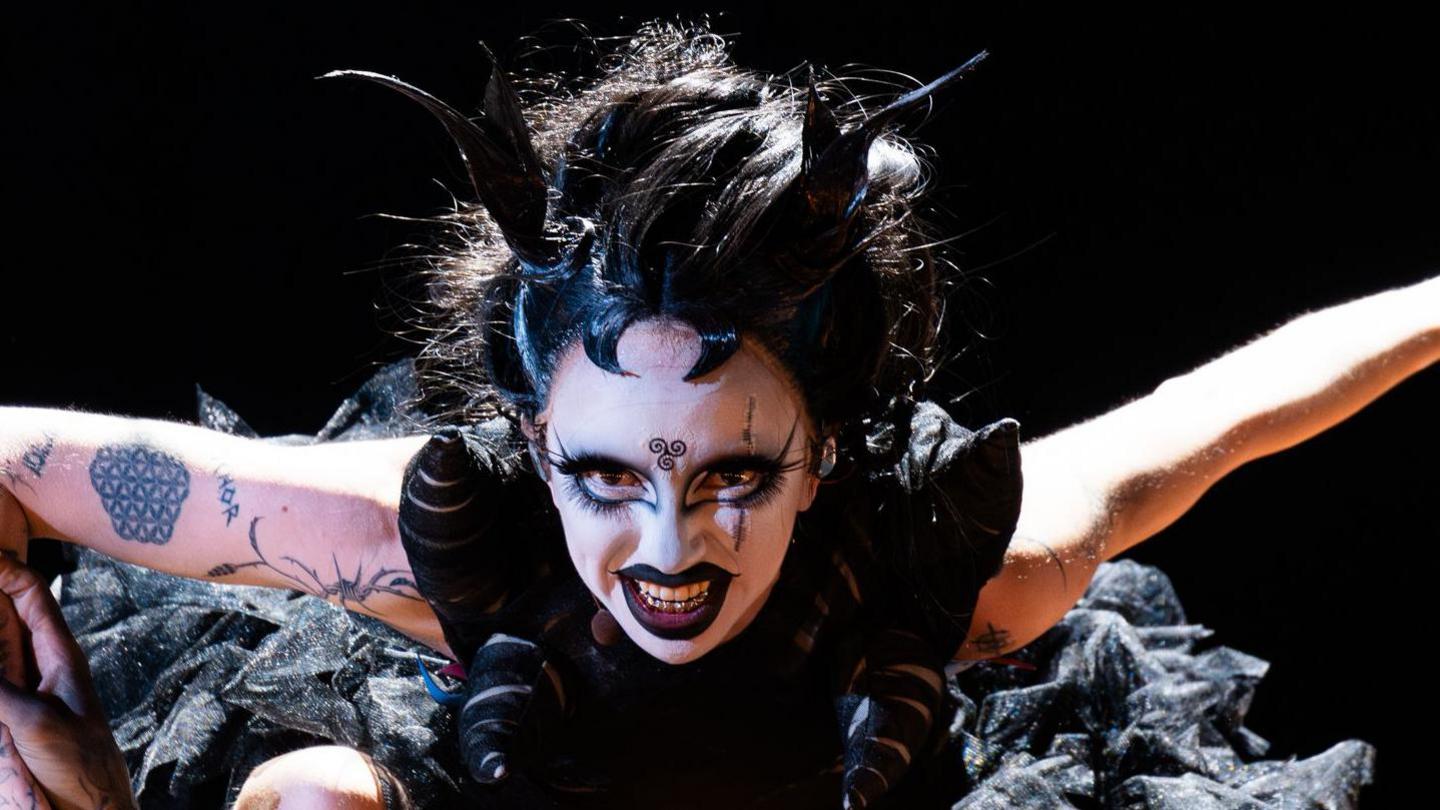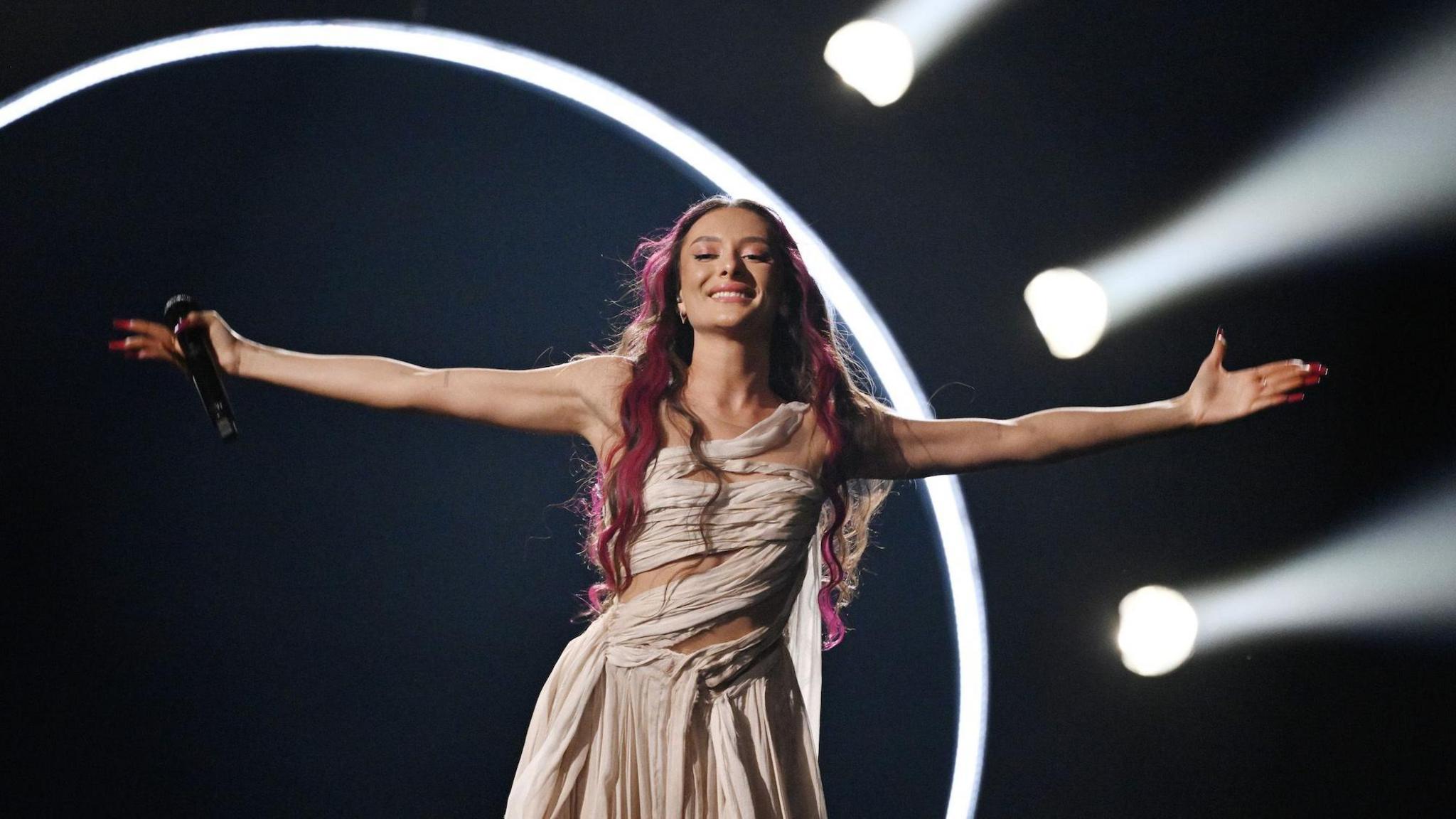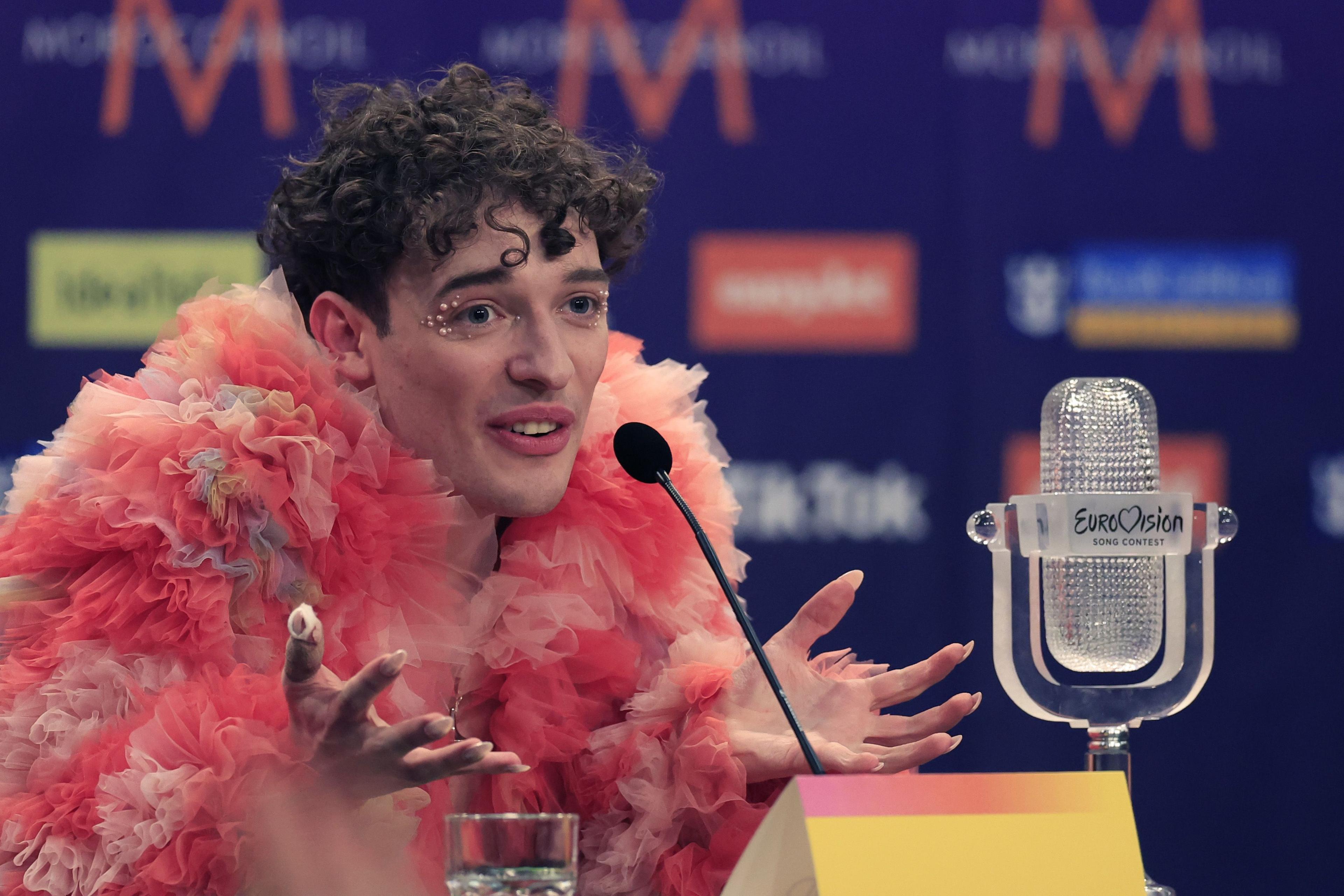Eurovision responds to complaints of bad behaviour

Bambie Thug was among contestants who lodged a complaint to the European Broadcasting Union
- Published
Eurovision Song Contest organisers have said they "regret" that some delegations "didn't respect the spirit of the rules" in Sweden.
Italy's Angelina Mango and Ireland's Bambie Thug are among contestants who complained of a "tense" and "horrible" atmosphere backstage.
The Dutch singer Joost Klein was also sent home after being accused of intimidating behaviour by a female member of the production crew.
In a statement on Monday, the European Broadcasting Union (EBU), which runs Eurovision, acknowledged that several contestants had lodged complaints.
"We spoke to a number of delegations during the event regarding various issues that were brought to our attention," it said.
"The EBU’s governing bodies will, together with the heads of delegations, review the events surrounding the ESC in Malmö to move forward in a positive way and to ensure the values of the event are respected by everyone."
It added that individual cases will be discussed at a later date.
The contest was overshadowed by protests over Israel's participation, due to the humanitarian cost of its war on Hamas.
Thousands of people protested on the streets of Malmö, and the country's representative, Eden Golan, received a mixture of boos and cheers from the audience.
After the grand final, Bambie Thug, who has been outspoken in their pro-Palestinian views, also accused Israel's national broadcaster, Kan, of "inciting violence" against them during its coverage.
During the first semi-final, one of the station's commentators noted that the performer had "spoken negatively about Israel".
"But we can talk about that later," the commentator added. "Prepare your curses."
The comment might have been a reference to a lyric in Bambie Thug's song, which involves placing a hex on an ex-partner, but the singer felt it crossed a line.
"The broadcaster [Kan] has disobeyed the rules and I hope next year they won’t be able to compete because of that," they told reporters after the contest.
Other participants accused the Israeli delegation of filming them and posting clips online without their permission.

Israel's Eden Golan came fifth, and scored the maximum 12 points in the UK's public vote
Golan, who ultimately came fifth in the contest, also acknowledged the controversy over her appearance had taken a toll.
"To say it was easy would be a lie," she wrote on Instagram, external. "But with your support and love it gave me the strength to continue and put on the absolute best performance I knew I can do."
Several entrants, including the UK's Olly Alexander, signed a joint statement calling for a ceasefire in Gaza in the run-up to the contest.
And Golan appeared to face criticisms from her fellow contestants during a press conference on Thursday night.
Greek singer Marina Satti was seen yawning and pretending to fall asleep while Golan spoke.
And when the Israeli singer was told she did not have to answer a question about whether her presence "posed a risk", Joost Klein interrupted to ask: "Why not?"
EU lodges complaint with Eurovision over flag ban
- Published13 May 2024
Switzerland's Nemo wins Eurovision as UK comes 18th
- Published12 May 2024
Chaotic build-up to Eurovision as thousands protest
- Published11 May 2024
Two days later, Klein was disqualified from the contest over an alleged run-in with a female member of the production crew, who made a complaint to Swedish police.
Dutch organisers The Netherlands Songfestival said Klein had "repeatedly indicated" he did not want to be filmed and that he "did not touch the camera woman".
At the time, the EBU felt it necessary to clarify that the incident "did not involve any other performer or delegation member".
Lithuania's entrant Silvester Belt, meanwhile, said he regretted taking part in the grand final altogether.
"Going after that country, with the crowd being so intense, was one of the worst things I had to go through," he wrote on social media, external, referring to the fact that his performance followed Israel's.
"I really did the best that I could in this situation," he added, calling the contest a "traumatic experience" and adding: "[I] wish it all ended after the first semi."

Nemo's The Code won the contest with 591 points, making it the fourth-highest scoring song in Eurovision history
Swiss singer Nemo won the contest with their song The Code, which discussed their journey to identifying as non-binary.
In a press conference after the show, the 24-year-old said participating had been "really intense" and "not just pleasant all the way".
They noted that “a lot of things” had happened to make it seem the contest was not "all about love and unity” which made them “really sad”.
However, they noted that “at the same time, there was so much love here as well", adding that "maybe Eurovision needs fixing a little bit".
Bambie Thug went further, simply stating: "[Expletive] the EBU."
The performer, who took sixth place, said that organisers had not responded to multiple complaints in the run-up to the final.
"We still haven’t got a statement back to us," they said, adding that the EBU had "allowed us to be scapegoats, allowed us to be the spokesperson for standing up for ourselves.”
Portugal's national broadcaster RTP also complained to the EBU after there was a delay in posting its performance to YouTube after the final.
The EBU responded that the delay had been due to their contestant, Iolanda, who had painted designs inspired by the keffiyeh - traditional Palestinian scarves used to show support for Gaza - on her nails.